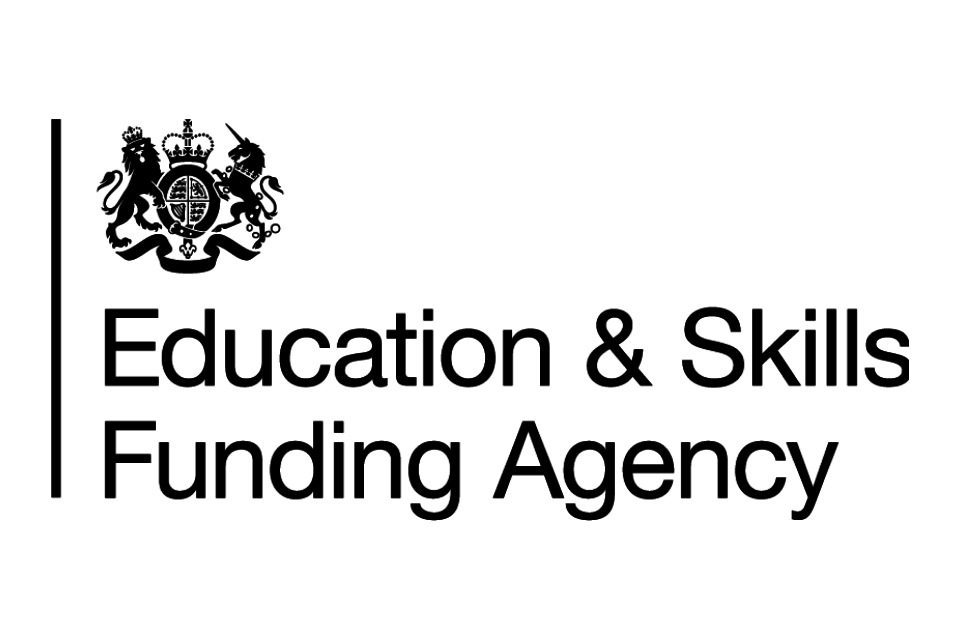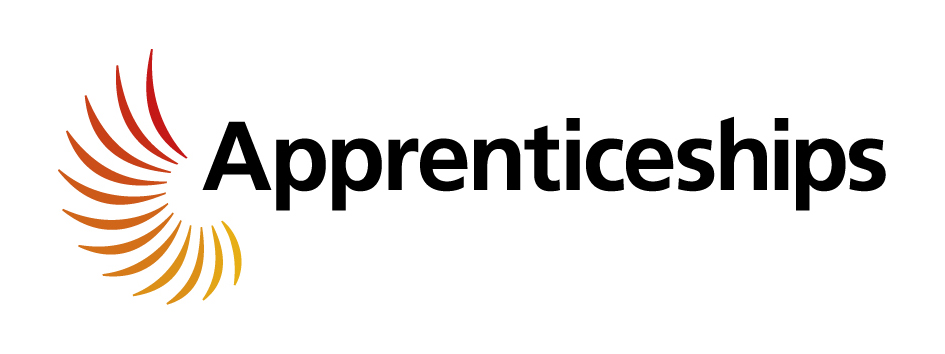
Nursing Associate Higher Apprenticeship
A rewarding career in healthcare.
You are here
- Home
- Apprenticeships
- Programmes in England
- Nursing Associate Higher Apprenticeship
Nursing Associate Higher Apprenticeship
The Nursing Associate Higher Apprenticeship is delivered in collaboration with healthcare employers. Apprentices develop their knowledge, skills and behaviours to the level required of a Nursing Associate and on successful completion of their apprenticeship are eligible to apply for registration with the Nursing and Midwifery Council (NMC) as a registered Nursing Associate.
The Nursing Associate is a highly trained generic support role within the field of Nursing. The role acts as a ‘bridge’ between unregulated Healthcare Assistants (HCA) and Registered Nurses. Nursing Associates work under the leadership and direction of Registered Nurses to deliver care.
Nursing Associates have the breadth of knowledge and flexible, transferable skill set to serve the health needs of local communities. They cover the full life span and a range of care settings. Nursing Associates need to be adaptable, reliable, and consistent. In addition, they are required to demonstrate resilience, self-awareness and leadership skills.
QUICK ACCESS LINKS
- Why choose The Open University’s Nursing Associate Higher Apprenticeship?
- Who is it for?
- Programme requirements
- Entry requirements
- Programme overview
- Programme components
- The support team
- Next steps
- Additional information for employers and apprentices
- Programme structure and delivery
- All programmes available
Why choose The Open University’s Nursing Associate Higher Apprenticeship?
The Open University (OU) has worked in partnership with healthcare employers for over 18 years to deliver highly successful work-based Nursing programmes. We offer:
- Extensive experience in developing learners’ study skills as they engage in the programme.
- Online content and forums available 24/7 to support high-quality education and learning regardless of location.
- Enhancement of the delivery of safe, effective and compassionate care, through developing evidence-based healthcare practitioners.
- Tutor-supported online learning delivered flexibly around the demands of your organisation, enabling apprentices to balance study with personal commitments.
- Experience in supporting learners, whatever their prior attainment.
- Apprentices can immediately apply learning to their practice, providing benefit to the organisation.
See why Kent Community Health NHS Foundation Trust chose the OU as a partner to deliver the Nursing Associate Higher Apprenticeship and how it benefits their Trust.
If I can do you can do it! Don’t give up on your dream.
Folashade (Fola) Yusuf-Adewuyi
The Nursing Associate Higher Apprenticeship is suitable for the development of existing HCAs to advance into registered Nursing Associate roles. The programme can also be used to support external recruitment of new Nursing Associate apprentices to your organisation.
Folashade (Fola) Yusuf-Adewuyi celebrates the completion of her Nursing Associate Higher Apprenticeship.
Primary care and private, voluntary and independent (PVI) organisations
We welcome interest from primary care and the PVI sector where:
- there is a minimum of five learners per cohort (across the local area)
- there is regional support to source placements and provide ongoing operational support.
If you are enquiring from Primary Care or a PVI organisation looking to support fewer than 5 learners you will need to explore with your Primary Care Network or Integrated Care System whether a cohort of five, and the placement and regional operational support can be co-ordinated.
Alongside the Education and Skills Funding Agency (ESFA) apprenticeship requirements, employers must commit to the following programme requirements for the Nursing Associate Higher Apprenticeship:
- Collaborate with the OU as part of the Nursing & Midwifery Council (NMC) Apprenticeship Modification Process, to be approved as an employer partner.
- Ensure apprentices have protected practice learning time whilst working in their core practice setting under the supervision of a registered healthcare practitioner.
- Provide apprentices with practice supervisors and practice assessors as per NMC (2018) Standards for student supervision and assessment.
- Provide practice learning experiences for apprentices which meet the NMC (2018) Standards for pre-registration nursing associate programmes.
- In consultation with the OU, identify and arrange alternative practice experiences where the apprentice undertakes at least 460 hours of supernumerary practice. Placements outside that of the apprentice’s core base need to allow apprentices experience in all fields of nursing practice (Adult, Children & Young People, Learning Disabilities and Mental Health) and with individuals across the lifespan.
For further information, visit the information for NAHA employers webpage.
The Open University does not set any formal entry requirements other than those set by the NMC and Apprenticeship Standards. Employers are free to set their own additional criteria.
Entry requirements set by the NMC and Apprenticeship Standards are:
- Demonstrate values in accordance with the Code (NMC (2018) The Code: Professional standards of practice and behaviour for nurses, midwives and nursing associates)
- Have capability to learn behaviours in accordance with the Code
- Have the capability to develop the numeracy skills required to meet the programme outcomes
- Can demonstrate proficiency in the English language
- Have capability in literacy to meet the programme outcomes
- Have capability for digital and technological literacy to meet the programme outcomes
In addition, apprentices must:
- Have a satisfactory criminal disclosure check (enhanced DBS or equivalent)
- Occupational Health Clearance
- Gain Level 2 English and maths by completion of the apprenticeship, if not already achieved (we strongly recommend completing these prior to entry)
For the latest information on vaccination requirements for frontline health and social care workers, please check the NHS England website and the Vaccination as a Condition of Deployment: Frequently Asked Questions (FAQ) for Pre-Registration Nursing and Midwifery and Allied Health Profession Students.
Below is a summary of the eligibility criteria as set by the government for apprentices. For further information, see the Government funding rules.
To be eligible for government funding, at the start of the apprenticeship, apprentices must:
- Be over 16 years old
- Not be in full-time education
- Not currently on another apprenticeship
- Have the right to live and work in England
- Spend at least 50% of their working hours in England
With a focus on holistic person-centred care, apprentices will develop and demonstrate effective interpersonal skills. They will meet service users’ needs and rights to be treated with dignity and privacy in a compassionate and caring manner. Based on the NMC (2018) Standards of proficiency for nursing associates, apprentices will study the theory and practice of topics such as:
- Being an accountable professional
- Promoting health and preventing ill health
- Providing and monitoring care
- Improving safety and quality of care
- Contributing to integrated care
- Professional values and parameters of practice
- Person-centred approaches to delivering nursing care
- Communication and interpersonal skills
- Team working
- Supporting learning and assessment in practice
- Research, development and innovation
The programme has start dates in February and October each year. It takes between 2-3 years to complete.
The apprenticeship is a partnership between the OU and your organisation, starting with the recruitment and selection process which is led by an OU Staff Tutor. The Nursing Associate programme consists of theory and practice learning. The OU delivers the theory elements via online distance learning with formative and summative assessments. In addition to practice learning hours, all apprentices are required to undertake off-the-job training time in line with ESFA funding rules.
The programme is split into two stages with a 60-credit theory module and a 60-credit practice module in each stage:
|
Stage 1 |
Stage 2 |
Completion |
|
Introducing health and social care |
Healthcare theory for practice |
Foundation Degree in Nursing Associate Practice awarded. Registration with the NMC as a Nursing Associate. EPA achieved. Apprenticeship programme completed. |
|
Introduction to healthcare practice |
Developing nursing practice |
|
| English and maths (functional skills) development* | ||
| Theory modules | |
| Practice modules |
* If required. The OU strongly recommends that these qualifications are achieved within the first 12 months of the apprenticeship in order to have maximum benefit on academic study and workplace development.
The apprenticeship is made up of the following seven components:
|
Recruitment and selection |
A partnership process involving the employer and led by an Open University staff tutor responsible for the Nursing Associate programme delivery in the locality. |
|
Tutor-supported study modules |
Build an understanding of the knowledge, skills and behaviours in taking apprentices’ capabilities to a higher level. |
|
Practice-based learning modules |
Guide apprentices in developing, applying and evidencing their academic knowledge to their Nursing Associate practice. |
|
English and Maths Functional Skills qualifications at Level 2 |
If not previously achieved. English and Maths Functional Skills tutors support the successful completion of these qualifications where an applicant is not able to provide evidence of prior attainment. |
|
Pan-England Nursing Associate Practice Assessment Document |
Records evidence of application of knowledge and demonstration of the skills, values and behaviours required to meet the NMC standards of proficiency for Nursing Associates within the Apprenticeship Standard. |
|
Foundation Degree |
Awarded by The Open University. Confirmation is provided to the Nursing and Midwifery Council (NMC) that the apprentice is eligible to apply for entry to join the professional register as a registered Nursing Associate. |
|
End-point assessment (EPA) |
Fully integrated within the programme. No separate EPA is required on completion of the programme. |
The Open University has the experience and support in place to help apprentices succeed and make a positive impact on practice.
In addition to designated account management support, the OU will deploy expert staff to support your organisation and your apprentices. They will work collaboratively with the relevant roles in your organisation:
Practice Tutor (PT) / Academic Assessor
The PT is a key role and provides individual support to apprentices to progress and complete all the requirements of the apprenticeship or professional programme they have enrolled in. The support is tailored to the context of each learner’s professional duties and their workplace environment. Regular engagement with each learner’s line manager or work-based supervisor is a critical component of this role, including three professional practice meetings and progress review meetings with three-way discussion involving the OU, employer and the apprentice, at least four times per year. In addition, the PT coaches the apprentice to integrate their academic learning with their professional work, guide them in the development of their portfolio and prepares them for their end-point assessment.
There are further roles and teams that support both apprentices and employers, and that work very closely with the PTs.
Academic Tutors
The role of the Academic Tutor is to support success by using, interpreting and building on the teaching resources produced by the OU and provided to apprentices. They monitor progression, mark assignments, provide personalised feedback and work in partnership to support the apprentices’ academic, personal and professional development. In addition, Academic Tutors provide pastoral support to apprentices. They are sometimes also referred to as Associate Lecturers or Module Tutors.
Nursing Staff Tutors
This is the local lead academic who supports your organisation to deliver the Nursing Associate Higher Apprenticeship to meet both organisational needs and the quality assurance requirements set by the NMC, with respect to practice learning requirements and learning environment audits.
Practice Assessor
Practice Assessors ensures the apprentice has resources to complete their competencies. They meet the apprentice regularly to follow up on their progress, discuss and sign off their competencies. The Practice Assessor is responsible for ensuring an apprentice is completing their competencies and liaises with other professionals and units to ensure the apprentice completes other competencies which may not be available in their allocated placement.
Practice Supervisor
The role of a Practice Supervisor is to support and supervise Nursing Associates apprentices in the practice learning environment. All nursing and midwifery apprentices must be supervised while learning in practice environments.
Apprenticeship Enrolment and Support Team (AEST)
The AEST supports apprentices throughout their Apprenticeship journey. This team of friendly Senior Advisors can offer advice and support for a range of queries apprentices may have whilst studying their modules, whether that be for advice on an upcoming assignment or exam, navigation around the OU online learning platforms or when they are experiencing difficult circumstances that are having an impact on their studies. This support team is able to reach out to a wide range of relevant teams within the University to help apprentices get back on track again.
English and Maths Support Team
This team is made up of English and/or maths specialist tutors and support staff. They work with apprentices who are required to achieve English and/or maths qualifications during their apprenticeship. These specialist tutors are able to provide one-to-one support in areas of challenge and to help prepare the apprentice for the formal qualification tests.
Apprenticeship Programme Delivery Managers (APDM)
Supports your organisation to deliver their apprenticeship programmes and manages the apprentice journey from start to completion. The Apprenticeship Programme Delivery Manager also provides employers with regular apprentice progress data.
Line Manager
This is a person in the workplace who supports the choice of apprenticeship programme for their employee or applicant and is involved in the onboarding process with their applicant. Line managers facilitate the apprentice to take off-the-job planned training time and they fully engage in quarterly progress review meetings with the Practice Tutor and apprentice. Line managers have regular one-to-one meetings with their apprentices to integrate the apprenticeship into performance and development. They are key to enabling a successful work-based project and completion of the apprentice’s end-point assessment.
Using The Open University’s tried-and-trusted educational technology, our programmes are delivered flexibly around apprentices’ personal lives and the demands of your organisation.
The tutor-supported online learning is both varied and interactive, with multiple rich media formats that engage and enthuse apprentices on their journey. Learning can be accessed 24/7 on computers, tablets and mobile devices, so apprentices can study at home, work and on the move. Online tutorials, forums and discussion groups allow apprentices to learn from different industries and backgrounds.
An apprenticeship is a job with a formal programme of training which meets the requirements of the Apprenticeship Standard (in England), Framework (in Wales). The time that employers must allocate to this training can vary between programmes. The planned training hours will be detailed in the Training Plan. Note that in England and Wales, this time is called 'off-the-job training' in England and in Scotland, it is called 'protected time'. This is time for the apprentice to engage in the learning with the OU during their contracted working hours.
For full guidance visit: Gov.uk.
The Open University’s flexible, blended learning approach makes it a lot easier for employers to effectively manage off-the-job training, while minimising the impact on productivity in the workplace.
For a more detailed look at our Nursing Associate Higher Apprenticeship, download our brochure, visit the information for NAHA employers webpage or contact our business team advisors.
INFORMATION FOR EMPLOYERS
Develop the relevant skills for your organisation, improve productivity and achieve higher staff morale.
INFORMATION FOR APPRENTICES
Earn while you learn and develop the skills you need to gain access to sectors you want to work in.
PROCURING VIA FRAMEWORKS
We’re an Approved/Appointed Supplier on a large number of national frameworks and dynamic purchasing systems. See which frameworks are available to procure this programme through.

Chartered Manager Degree Apprenticeship
The Chartered Manager Degree Apprenticeship provides apprentices with higher level leadership and management skills, core competencies and desired behaviours to become a more effective manager.

Digital and Technology Solutions Professional Degree Apprenticeship
The Open University’s Digital and Technology Solutions Professional Degree Apprenticeship programme develops the higher-level skills and behaviours required to create confident and capable digital and technology professionals.

Nursing Associate Higher Apprenticeship
The Nursing Associate is a highly trained generic support role within the field of Nursing which acts as a ‘bridge’ between unregulated Healthcare Assistants (HCA) and Registered Nurses.

Registered Nurse Degree Apprenticeship
The Open University’s Registered Nurse Degree Apprenticeship supports employers to develop their healthcare support workers (HCSWs) towards registration with the Nursing and Midwifery Council, as either Adult, Children and Young People, Learning Disabilities or Mental Health Nurses.

Senior Leader Apprenticeship
Our Senior Leader Apprenticeship develops inclusive leaders who are responsible for developing ethical, innovative and supportive cultures with the ability to deliver results, manage complexity and instigate change.

Social Worker Degree Apprenticeship
Our Social Worker Degree Apprenticeship is a practice-based learning programme that combines theory and practice-based learning and development, delivered flexibly around the demands of your workplace.

Systems Thinking Practitioner Apprenticeship
Graduates from the programme will be able to apply systems thinking in practice, creating leaders and managers capable of making strategy, managing change and co-designing systems interventions in your organisation.

Police Community Support Officer Apprenticeship
Our Police Community Support Officer Apprenticeship programme mixes on-the-job training with off-the-job learning and provides the skills and knowledge needed for a policing career.

Police Constable Degree Apprenticeship
The Police Constable Degree Apprenticeship is delivered through the Police Educational Qualification Framework (PEQF) and led by The Open University Policing Organisation Practice (POP) Team, and provides a mixture of interdisciplinary academic and professional police experience and expertise.
 |
 |
Programme Summary
Location: England
Duration
- Standard route: 2-3 years depending on start date
Qualifications achieved at the end of the programme
- Foundation Degree in Nursing Associate Practice
- Nursing Associate Higher Apprenticeship awarded by the Institute of Apprenticeships and Technical Education (IfATE)
Level and standard
- Apprenticeship Level 5
- Apprenticeship standard
Specific entry requirements
Recognition of prior learning (RPL)
End-point assessment (EPA)
- Integrated
Additional information
Contact usDisability support
Further information
 |
For a more detailed look at our Nursing Associate Higher Apprenticeship, download our brochure. |
Not on our mailing list?
Sign up to receive regular emails that are full of advice and resources to support staff development in your organisation.




